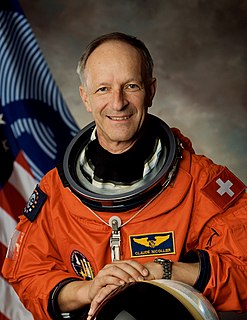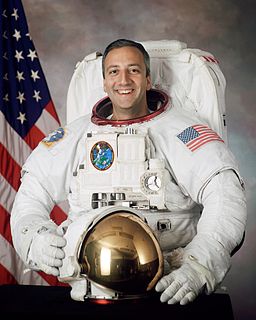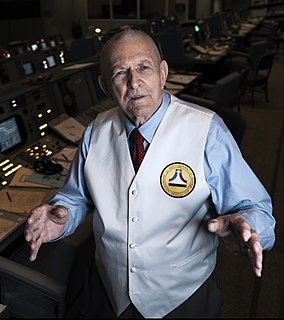A Quote by Alan G. Poindexter
I feel privileged and honored to have flown. It's been a tremendous ride, looking back on the legacy and accomplishments, like the Hubble telescope and the launching of the International Space Station in 1998.
Related Quotes
The reason we have the stars twinkle at night is because the light is being kind of blurred by the atmosphere around the Earth. That is why the Hubble Space Telescope is so good, because it is above the atmosphere. So it is kind of like looking at the sun from the bottom of a swimming pool, versus looking at the sun above the swimming pool.
The space station mission was kind of the culmination of all of my experience of being a NASA Astronaut, so it had brought all of my previous experience into play. I had to learn the Russian language to a fluent level so that I could function as the co-pilot of the Soyuz Spacecraft that we flew up and back from the space station. And then the challenge of being the Commander of the whole expedition, a six and a-half month flight aboard the international space station. I felt the burden of the whole mission on my shoulders, which was fine, and fortunately everything did go well.
The International Space Station is a phenomenal laboratory, an unparalleled test bed for new invention and discovery. Yet I often thought, while silently gazing out the window at Earth, that the actual legacy of humanity's attempts to step into space will be a better understanding of our current planet and how to take care of it.

























